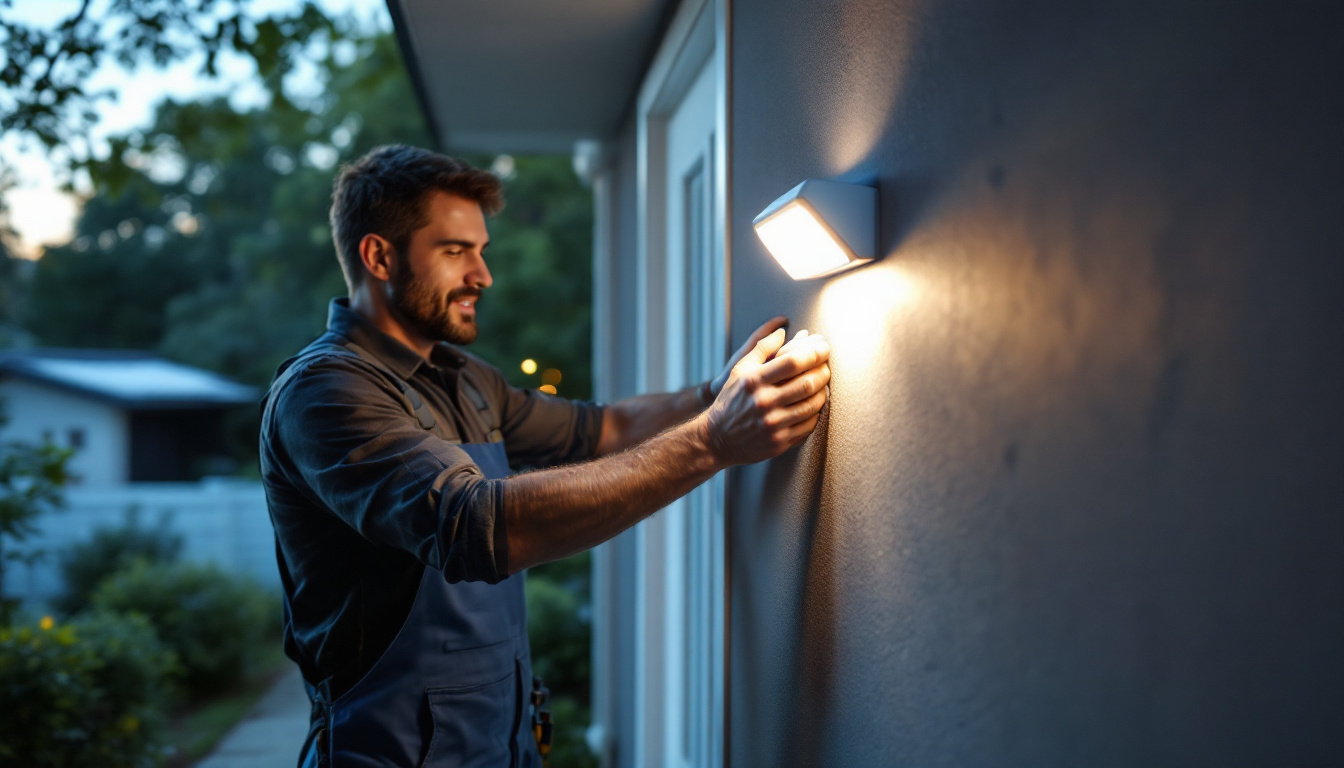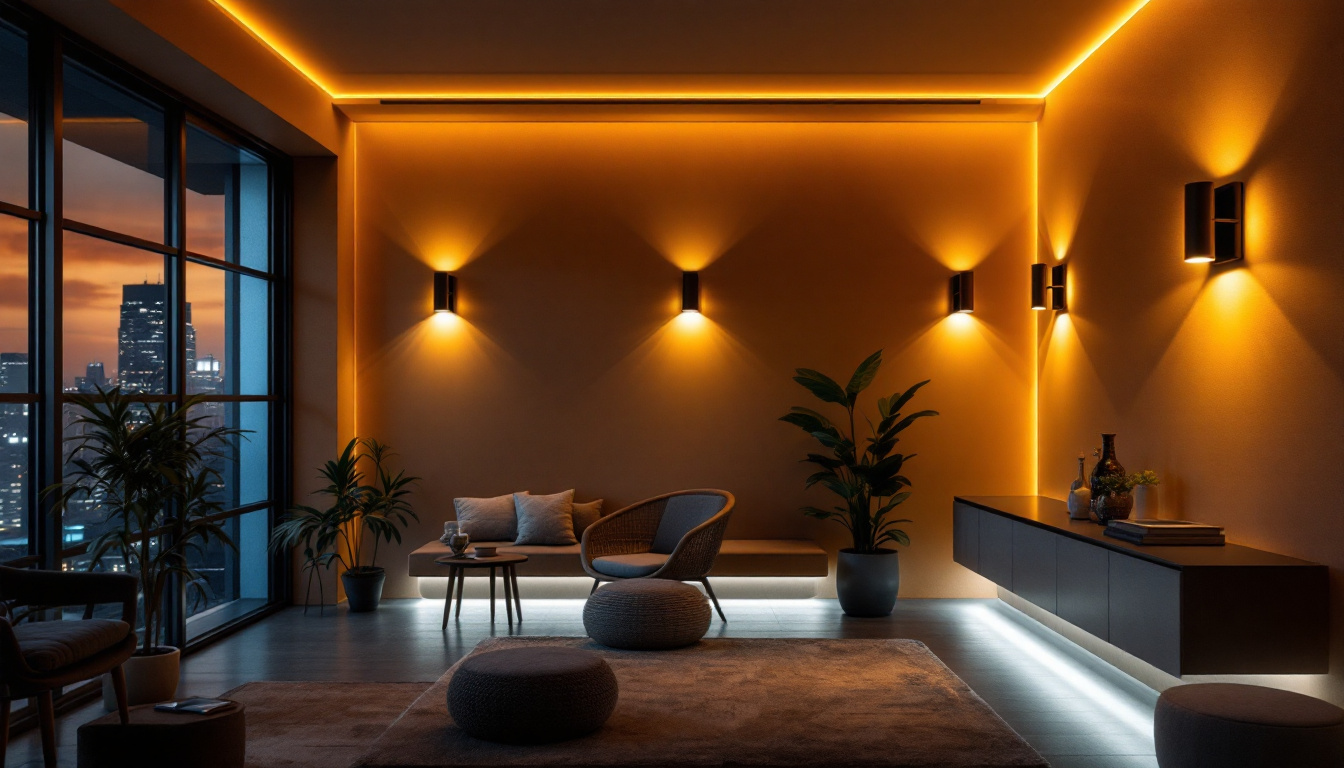
In the ever-evolving world of electrical installations, lighting contractors play a pivotal role in ensuring that spaces are well-lit, safe, and aesthetically pleasing. As technology advances and design trends shift, it becomes increasingly important for lighting contractors to stay informed about essential facts that can enhance their work and improve client satisfaction. This article delves into critical aspects of the lighting contracting industry, from understanding electrical codes to the latest trends in energy efficiency.
Electrical codes are the backbone of safe and effective lighting installations. They ensure that all electrical work meets minimum safety standards, protecting both the contractor and the client.
Compliance with electrical codes is not just a legal requirement; it is a commitment to safety and quality. Contractors must familiarize themselves with local, state, and national codes, as these regulations can vary significantly. Understanding these codes helps in avoiding costly fines and ensures that installations are safe and reliable.
Moreover, compliance fosters trust with clients. When contractors demonstrate knowledge of and adherence to electrical codes, clients feel more secure in their choice of contractor, knowing that their safety is prioritized. This trust can lead to repeat business and referrals, which are invaluable in a competitive market. Additionally, being well-versed in electrical codes can enhance a contractor’s reputation, positioning them as a knowledgeable and responsible professional in the eyes of potential clients.
Among the various codes, the National Electrical Code (NEC) is one of the most critical in the United States. It outlines standards for safe electrical design, installation, and inspection. Familiarity with NEC can significantly enhance a contractor’s expertise, as it covers a wide range of topics, including wiring methods, grounding, and overcurrent protection.
Additionally, local codes may impose stricter guidelines. For instance, cities with unique environmental concerns may have specific requirements for outdoor lighting. Contractors should always check for any local amendments to the NEC to ensure full compliance. Understanding these local nuances not only helps in adhering to safety standards but also in designing installations that are energy-efficient and environmentally friendly. As sustainability becomes a priority for many clients, knowledge of energy codes and green building practices can set a contractor apart from the competition, allowing them to offer innovative solutions that align with modern expectations.
As sustainability becomes a priority in construction and renovation, energy efficiency in lighting has gained immense importance. Contractors must stay updated on the latest trends and technologies that promote energy conservation. The push for greener building practices is not just a fleeting trend; it represents a fundamental shift in how we approach design and functionality in our living and working spaces. With increasing awareness of climate change and its impacts, both consumers and businesses are seeking solutions that not only reduce their carbon footprint but also lower operational costs.
Light Emitting Diodes (LEDs) have revolutionized the lighting industry. They consume significantly less energy than traditional incandescent or fluorescent bulbs and have a longer lifespan. This not only reduces energy bills for clients but also minimizes the frequency of replacements, leading to lower maintenance costs. Moreover, the environmental benefits of LEDs are substantial; they contain no hazardous materials and are 100% recyclable, making them a more sustainable choice overall.
Furthermore, LED technology continues to advance, offering options such as smart lighting systems that can be controlled remotely. These features allow clients to customize their lighting experience, enhancing both convenience and energy savings. Recent innovations have also introduced tunable white LEDs, which can adjust their color temperature throughout the day to mimic natural daylight, promoting better health and well-being for occupants. This adaptability not only enhances aesthetic appeal but also supports circadian rhythms, leading to improved productivity in workspaces.
Smart lighting is another trend that is reshaping the industry. These systems allow users to control their lighting through smartphones or voice-activated devices, providing flexibility and efficiency. Lighting contractors should be well-versed in the installation and configuration of smart lighting systems to meet the growing demand. As smart home technology becomes more prevalent, integrating lighting with other systems—such as security and climate control—can create a seamless user experience that maximizes both comfort and energy efficiency.
Incorporating smart lighting solutions not only appeals to tech-savvy clients but also aligns with energy-saving initiatives. Many smart lighting products are designed to minimize energy consumption, making them an attractive option for environmentally conscious consumers. Additionally, these systems often come with built-in sensors that adjust lighting based on occupancy or natural light levels, further optimizing energy use. As the market for smart devices continues to expand, the potential for innovation in lighting solutions is boundless, paving the way for even more sophisticated and sustainable options in the near future.
Beyond technical knowledge, effective lighting design plays a crucial role in the success of any project. Lighting contractors must consider various factors to create spaces that are not only functional but also aesthetically pleasing.
Each space has unique characteristics that influence lighting design. Contractors should assess factors such as room size, color schemes, and the intended use of the space. For instance, a cozy restaurant will require different lighting than a bright office environment.
Moreover, understanding how natural light interacts with artificial lighting can lead to more effective designs. Utilizing daylighting strategies can enhance the ambiance while reducing energy consumption.
Effective lighting design often involves layering different types of light: ambient, task, and accent. Ambient lighting provides overall illumination, task lighting focuses on specific areas for activities, and accent lighting highlights architectural features or artwork.
By combining these layers, contractors can create a dynamic lighting environment that meets the needs of the space while enhancing its beauty. This approach not only improves functionality but also elevates the overall aesthetic appeal.
Safety should always be a top priority for lighting contractors. Implementing best practices can significantly reduce the risk of accidents and ensure a smooth workflow.
Following proper installation techniques is essential for ensuring safety and functionality. This includes using the right tools, following manufacturer instructions, and adhering to electrical codes. Additionally, contractors should conduct thorough inspections of their work to identify any potential issues before the final walkthrough.
Training and continuous education are also vital. Keeping up with industry standards and safety protocols can prevent accidents and enhance the quality of work. Regular workshops and certification courses can be beneficial for contractors looking to improve their skills.
Using appropriate personal protective equipment (PPE) is crucial in the electrical field. Contractors should always wear safety glasses, gloves, and hard hats when working on installations. This not only protects the individual but also sets a standard for safety on the job site.
Moreover, ensuring that all tools and equipment are in good working condition can prevent accidents. Regular maintenance and proper storage of tools contribute to a safer working environment.
Effective communication with clients is essential for successful project management. Lighting contractors must be able to convey technical information in a way that clients can understand, ensuring that expectations are aligned throughout the project.
From the outset, it is crucial to set realistic expectations regarding timelines, budgets, and outcomes. Clear communication about what clients can expect helps to build trust and reduces the likelihood of misunderstandings later in the project.
Regular updates on project progress can also enhance client satisfaction. Keeping clients informed about any changes or challenges that arise demonstrates professionalism and commitment to quality.
Encouraging client feedback throughout the project can lead to better outcomes. Contractors should be open to suggestions and willing to adapt their designs based on client preferences. This collaborative approach not only improves the final product but also fosters a positive working relationship.
As technology continues to advance, the lighting contracting industry is poised for significant changes. Staying ahead of these trends is essential for contractors looking to remain competitive.
The integration of renewable energy sources, such as solar power, into lighting design is becoming increasingly popular. Contractors should explore options for incorporating solar-powered lighting systems, especially in outdoor applications. This not only reduces energy costs but also aligns with global sustainability goals.
Moreover, understanding how to design systems that work in conjunction with renewable energy can set contractors apart in a competitive market.
There is a growing awareness of the impact of lighting on health and well-being. Research has shown that proper lighting can enhance mood, productivity, and overall well-being. Lighting contractors should consider the psychological effects of light when designing spaces, focusing on factors such as color temperature and intensity.
Incorporating circadian lighting systems, which mimic natural light patterns, can significantly improve the quality of life for occupants. This trend is particularly relevant in settings such as healthcare facilities and educational institutions.
The role of lighting contractors is more critical than ever in creating safe, efficient, and aesthetically pleasing environments. By understanding electrical codes, keeping up with energy efficiency trends, mastering design considerations, prioritizing safety, and fostering effective communication with clients, contractors can enhance their services and ensure client satisfaction.
As the industry evolves, staying informed about future trends will be essential for success. Embracing new technologies and approaches will not only benefit contractors but also contribute to a more sustainable and health-conscious built environment. In a field where innovation meets artistry, lighting contractors have the unique opportunity to illuminate spaces while shaping the future of design.
Ready to elevate your lighting game? At LumenWholesale, we provide lighting contractors with the highest quality, spec-grade lighting products at prices that can’t be beaten. Say goodbye to local distributor markups and hello to our direct-to-contractor wholesale advantage. Our extensive selection not only meets but exceeds industry standards, ensuring your projects shine with reliability and performance. Plus, with free shipping on bulk orders, you’ll enjoy the pinnacle of quality, affordability, and convenience. Don’t settle for less—choose LumenWholesale for Wholesale Lighting at the Best Value and light up your clients’ spaces with confidence and style.

Discover how motion sensor LED lights can revolutionize the workflow for lighting contractors, offering significant time and cost savings.

Discover innovative cost-saving strategies for lighting contractors with non-shunted tombstones.

Discover why purchasing landscape lighting in bulk from local distributors might not be the best choice for your project.

Discover the essentials of LED wall lighting with our comprehensive guide tailored for lighting contractors.